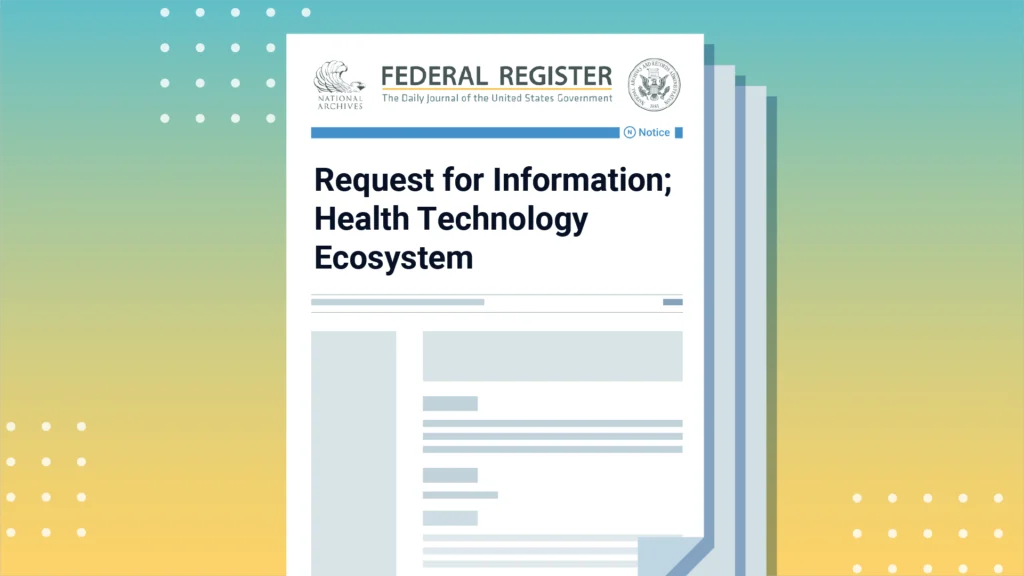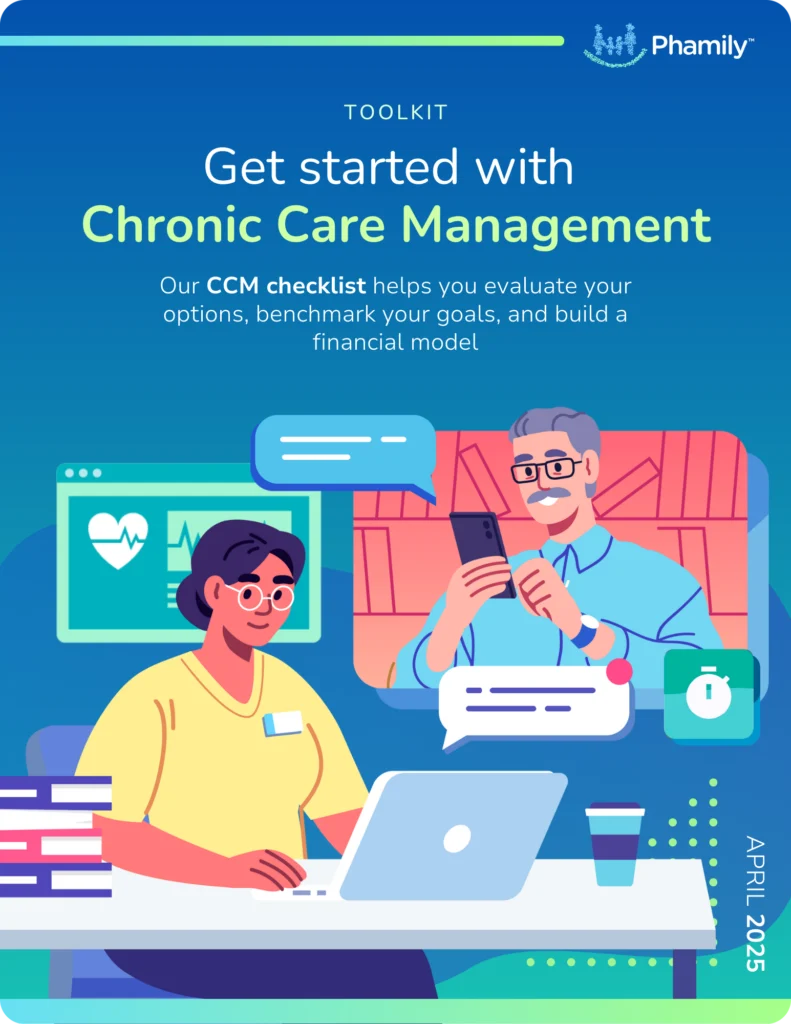Thurmond Eye Associates

In the Rio Grande Valley, care managers help Thurmond Eye patients avoid complications and protect their vision while generating substantial incremental revenue.
Phamily’s Public Comment on the CMS Request for Information; Health Technology Ecosystem

We can’t talk about an evolution in health tech without talking about an evolution in payment models and financial policy.
Mental Health and Chronic Condition Management

When we think about managing chronic conditions, we often focus on medications, labs, and lifestyle changes. But mental health plays a critical (and sometimes overlooked) role. Anxiety, depression, and emotional stress can make it harder for patients to stick to treatment plans, attend appointments, and stay motivated. That’s why integrating mental health into chronic condition care isn’t just beneficial—it’s essential.
Why Cutting Costs Won’t Save Your Independent Practice

Medicare reimbursement rates have declined 33% over the last 20 years while practice costs have skyrocketed. Every year, financial challenges further squeeze independent practices. It’s only natural that managing partners and practice administrators start scrutinizing expenses and slashing costs. But cost-cutting alone won’t protect a practice.
Pulmonary Associates of Fredericksburg

For over 30 years, Pulmonary Associates of Fredericksburg (PAF) has served families in Fredericksburg, VA — as a proudly independent pulmonology practice with physicians who are free to make the best decisions for their patients. CCM helped PAF improve patient access, deliver proactive care to 1300 patients, drive $840k in annualized revenue at a 58% margin, and earn patient satisfaction scores of 9.6 out of 10.
Thriving Independently: Entrepreneurial Opportunities for Physician-Led Practices

How can independent practices navigate financial pressures, regulatory burdens, staffing challenges, and reimbursement complexities—all while preserving clinical autonomy? Managing partner Rohit Goyal, MD of Pulmonary Associates of Fredericksburg takes an entrepreneurial approach to practice leadership that helped him increase annual revenue by 15%—without increasing his workload.
Good Care Shouldn’t Begin in the Emergency Room

Over a decade ago, my father suffered a heart attack. In the weeks that followed, he received an overwhelming amount of care: hospital visits, specialists, medications, and lifestyle changes that were suddenly top priorities. But what struck me most was the glaring absence of professional support before his heart attack.
Why Independent Practices Need to Survive — and Thrive

Patients can receive great care in many different settings, from a large national health system to the office of a single rural physician. So why is there so much concern about the decline of independent practices?
Getting Started with Chronic Care Management (CCM)

To take advantage of the new Advanced Primary Care Management (APCM) reimbursement for supporting patients with between-visit care, providers must meet 4 practice-level capabilities and perform 6 care management activities.
Simplifying Compliance in Chronic Care Management

Whether you’re new to CCM or looking to improve your program, compliance is critical. Joining us is Amanda Crouch, CPC, CPMA, CIC, CRC, Vice President of Operations at The Grant Group. With over 15 years of experience in healthcare coding, auditing, and revenue cycle management, Amanda is a leading expert in CCM compliance.
From Burnout to Balance: The Unfair Reality of Neurology Compensation & How to Take Control

At this year’s NeuroNet Pro Annual Summit, one conversation stood out: Neurologists are being compensated unfairly. The numbers prove it, but even more compelling were the discussions with real physicians—people like you—who are feeling the weight of administrative burdens, low reimbursements, and financial pressures that make it harder to stay independent…
Advanced Primary Care Management vs. Chronic Care Management

The introduction of Medicare APCM presents new opportunities for medical practices to receive fair reimbursement for the between-visit work they are already doing, but which fee-for-service program is right for your organization?
